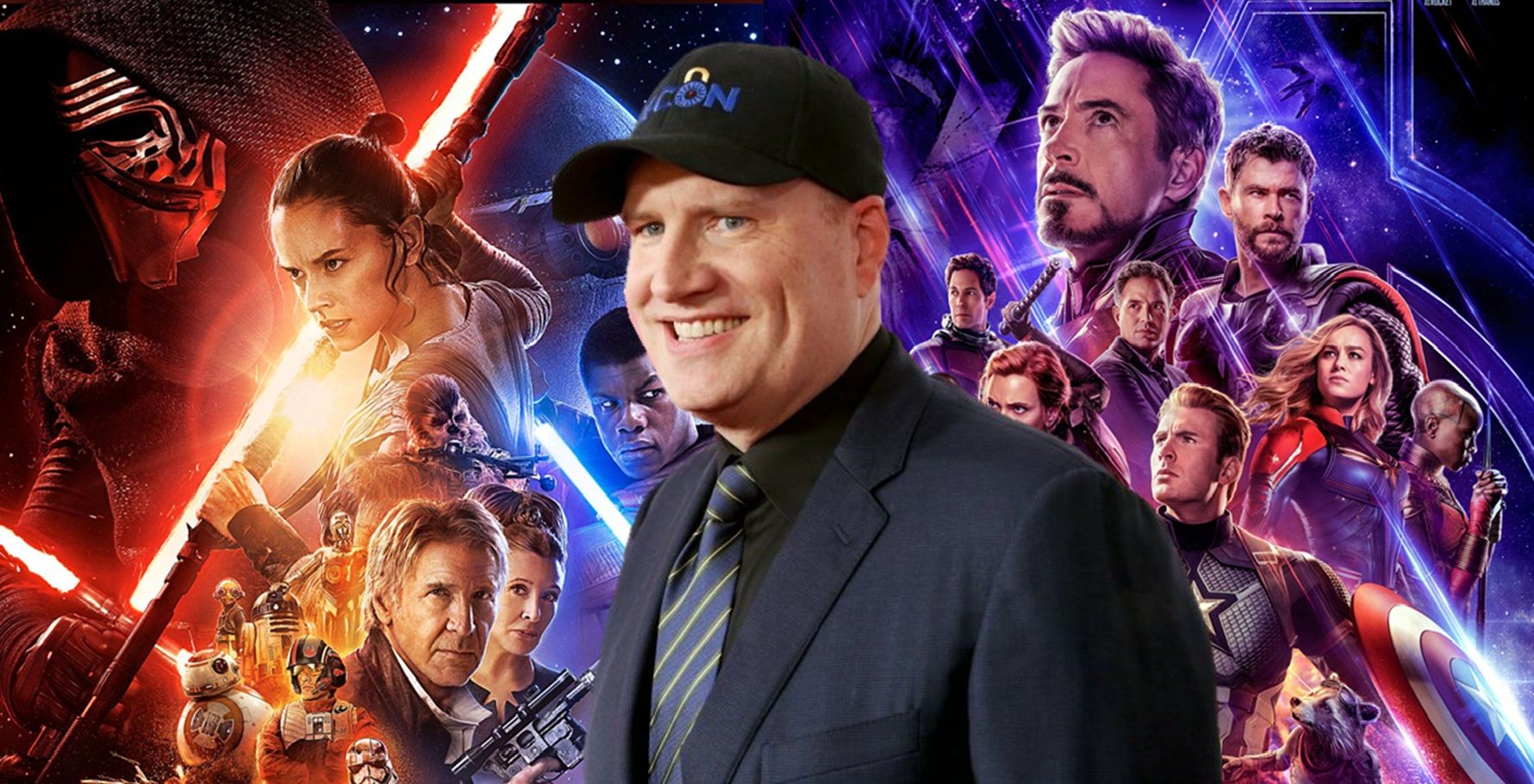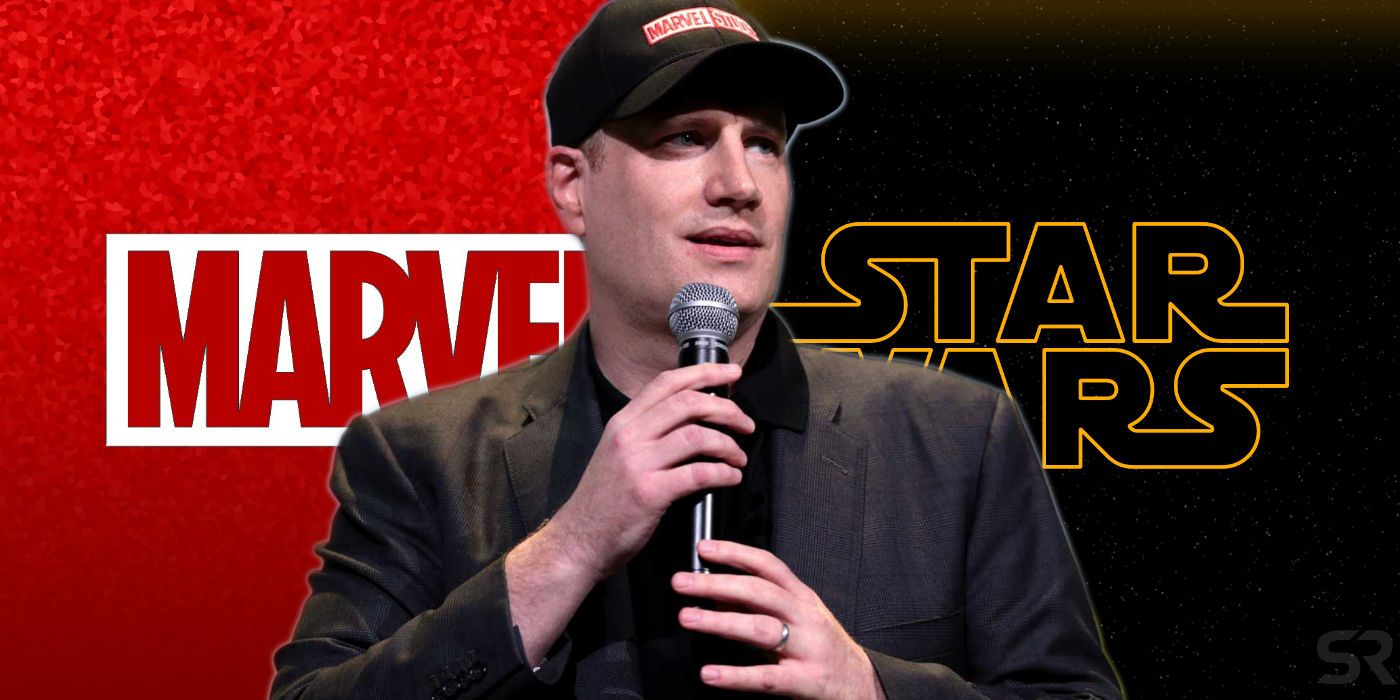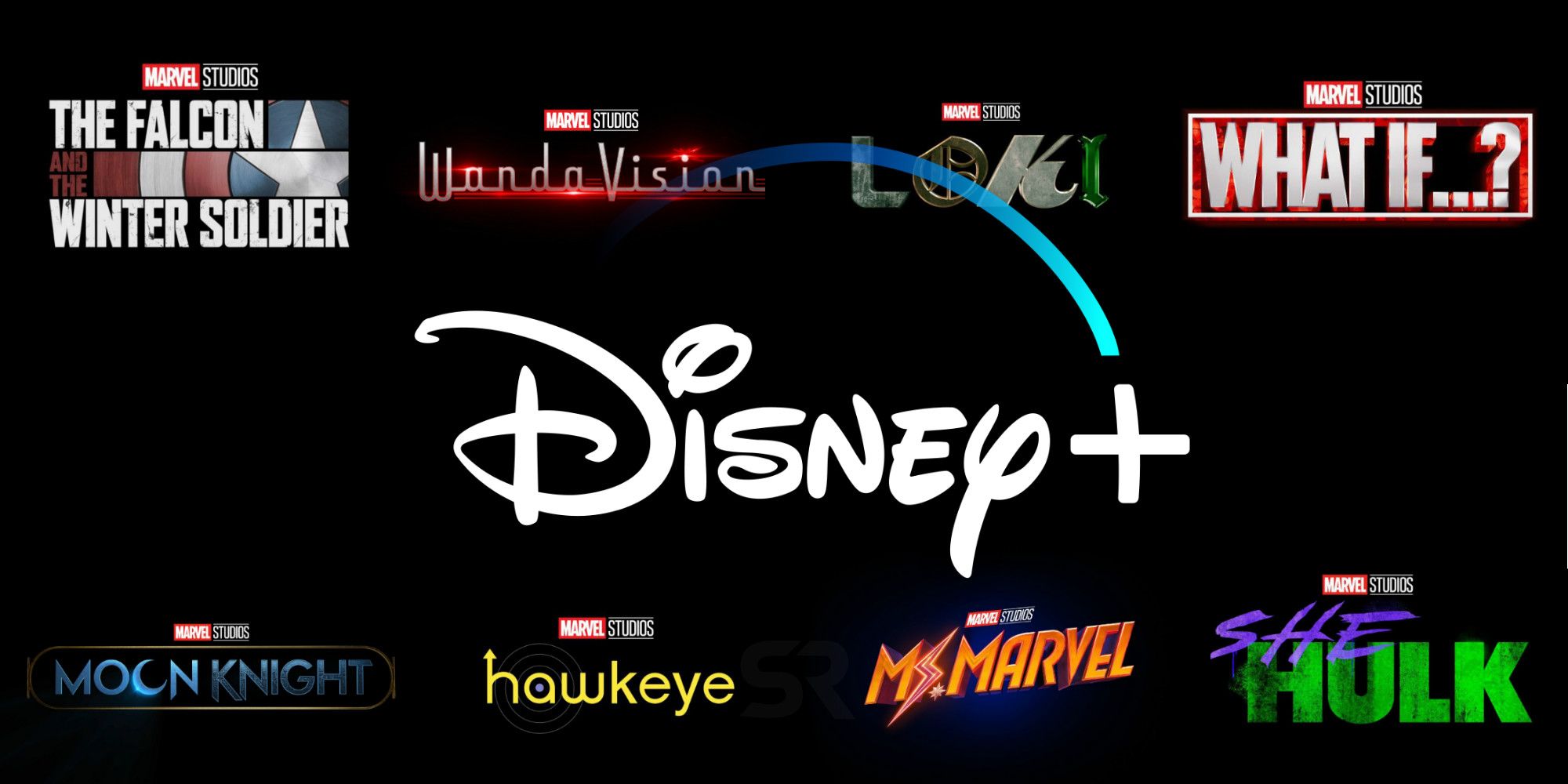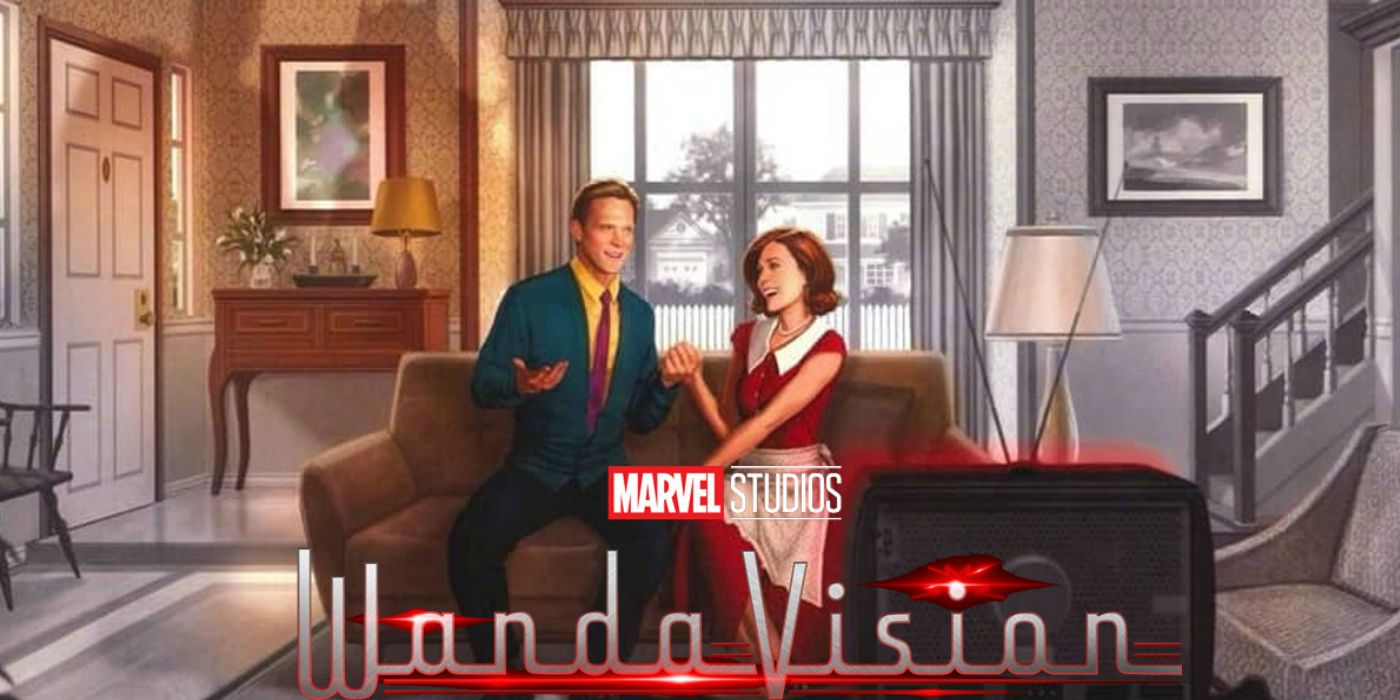The MCU's Phase 4 is being shaped by Star Wars' successes - and its failures. The Marvel Cinematic Universe is essentially reinventing itself for Phase 4, to the extent that it shouldn't really be called a "Cinematic" Universe anymore at all. Rather, it's expanding beyond the movies, becoming what's perhaps better called a "Transmedia" Universe. It incorporates everything from tie-in novels to TV shows that will cross over directly with the movies themselves.
Marvel isn't the first company to try this approach; Marvel Studios president Kevin Feige and his team are following in the footsteps of Lucasfilm, who've been managing a kind of transmedia universe for decades. Feige is a long-term Star Wars fan, having grown up with the franchise, and he seems to have learned some key lessons from Lucasfilm. He's being quite open about the fact he's drawing inspiration from them, too. The upcoming TV shows were celebrated with a Disney+ program called "Expanding the Universe," reminiscent of Star Wars' old Expanded Universe; the tie-in novels are marketed with taglines like "Road to Avengers: Endgame," exactly the same kind of marketing approach Lucasfilm use for their books ahead of a big release.
Of course, as anyone familiar with Star Wars will know, Lucasfilm's attempt to manage a transmedia universe has been marked with both successes and failures. Feige and his team are quite critical, and there are signs they've learned from both.
Marvel's Approach Needs Kevin Feige
A transmedia universe requires a centralized vision, with strict control in order to ensure everything lands effectively. Kathleen Kennedy understood that when she took over Lucasfilm around the time of the Disney purchase, and as a result she established the Lucasfilm Story Group. They're responsible for keeping track of the canon in order to ensure everything joins together, assisting writers and directors in the development of new stories. Content is staggered across the different mediums, and at best it creates a wonderful, cohesive feeling to the franchise. The high point was around the release of Rogue One: A Star Wars Story, with tie-in novels such as James Luceno's Catalyst and Alexander Freed's Rogue One novelization adding real depth to the epic.
Marvel's corporate culture is different, and as a result, they're unlikely to set up a similar Story Group; it would evoke memories of the highly problematic Marvel Creative Committee, thankfully shut down in 2015. Instead, at Marvel all oversight sits with Kevin Feige, who acts as a producer to all MCU content. Feige's remit is expanding, to the point that he has also been appointed Chief Creative Officer of Marvel Entertainment, with oversight on creative, editorial, and narrative decisions across all mediums. Anything Feige isn't involved with appears to be winding down, with the cancellation of shows such as Cloak & Dagger and Ghost Rider. And the timing of all this matches perfectly with the launch of Phase 4, just when Marvel Studios is reinventing itself.
The Expanded Universe Needs To MATTER
Lucasfilm's old Expanded Universe had one critical flaw; it took a tiered approach to canon, with the films operating at the highest level and the rest of the content subsidiary to it. That meant the canon was in a constant state of flux, because every time George Lucas made another film, the secondary canon had to adapt. Up until the current restructure, the division between Marvel Studios and Marvel Television meant the MCU followed a similar pattern, with the TV shows constantly forced to adapt to events on the big screen. Matters built to a head with Agents of SHIELD season 6, which didn't even try to keep up with the events of Avengers: Infinity War, and might as well be set in an alternate universe.
But in order to create a true transmedia franchise, Marvel Studios will take a vastly different approach. This time round, everything will matter; the Disney+ TV shows will introduce characters like Ms. Marvel and Moon Knight, who Marvel have confirmed will make the jump to the movies. Falcon and Winter Soldier feels like essential setup for Sam Wilson's upcoming MCU arc, as he wields the shield as the new Captain America; both WandaVision and Loki tie in to Doctor Strange in the Multiverse of Madness; and there have been reports the Loki series will explain how Mjolnir is recovered for Thor: Love and Thunder. Little is known about Marvel's plans for the tie-in novels and comics, but hopefully they will be similarly essential. Finally the MCU's old tagline - "It's All Connected" - will be true.
Will The MCU's Phase 4 Approach Work?
When Marvel Studios launched the MCU, nobody was entirely sure the idea of a cinematic universe would even work. In the end, it's proved to be one of the greatest successes in the history of Hollywood, going from strength to strength, with this year's Avengers: Endgame becoming the highest-grossing film of all time. But Phase 4 is another grand experiment, with the MCU growing beyond the movies.
But will viewers actually buy into this "Marvel Transmedia Universe?" While an interconnected universe that transcends the boundaries of any one medium sounds like a thrilling idea, its success will depend upon careful management. Every individual piece of content must matter, but everything must also be able to stand on its own two feet, accessible to a brand new viewer.
Introducing characters and plot points on the small screen is exciting, but it creates the risk that the movies themselves could wind up only fully understood by Disney+ subscribers. Think of the confusion many Star Wars viewers felt when Darth Maul appeared in Solo: A Star Wars Story; only people who were familiar with the Star Wars animations even knew the former Sith Apprentice had survived Star Wars Episode I: The Phantom Menace. As a result, average moviegoers were completely lost. Marvel can't afford any moments like that.
If anyone can get it right, though, it's Kevin Feige. Marvel's unbroken string of blockbuster hits is testimony to his skill as a producer and the strength of his creative vision. His familiarity with Lucasfilm means he understands why previous attempts at building a transmedia universe have been flawed, and with careful forethought Feige should be able to avoid those same mistakes. Marvel's Phase 4 is risky - but there's no reason to assume the risks won't pay off.










